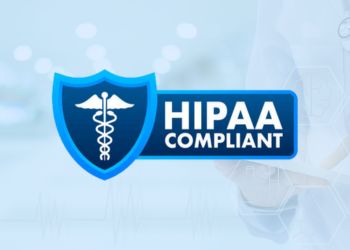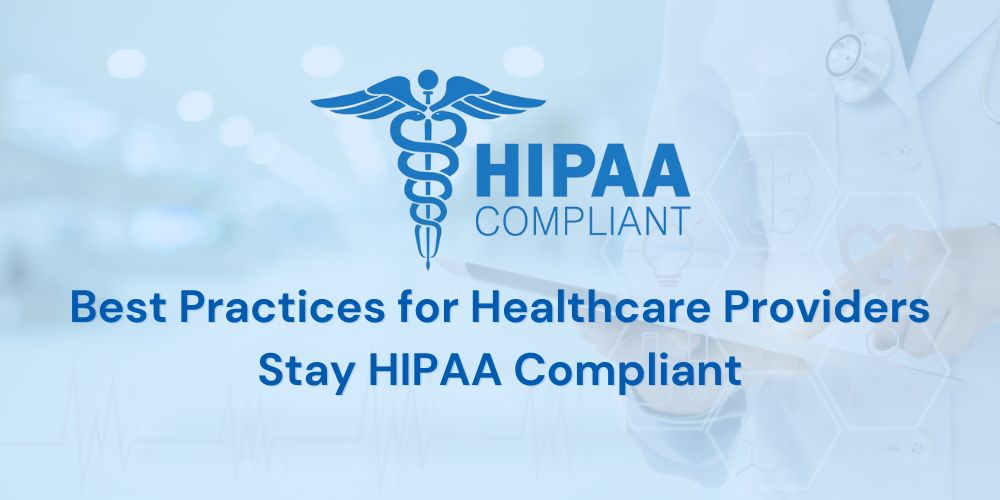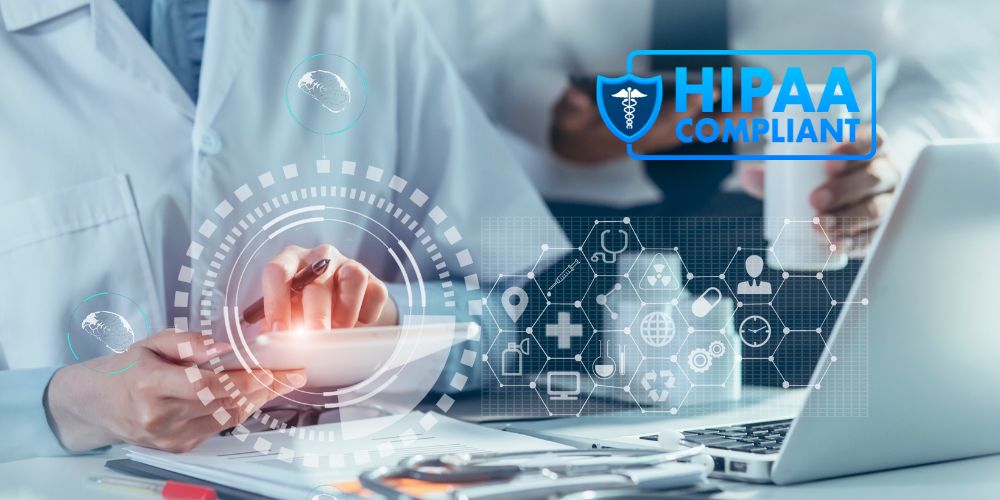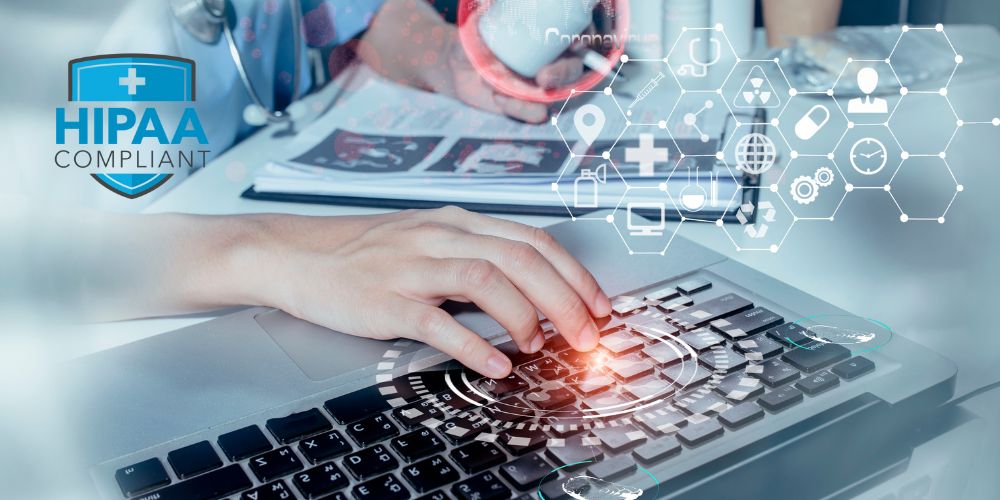Ensuring HIPAA Compliance in Medical Billing: A Comprehensive Handbook


The healthcare industry relies heavily on the exchange of sensitive patient information to provide quality care and efficient medical billing services. However, with the increasing digitization of healthcare data and the use of electronic health records (EHRs), ensuring the security and privacy of patient information has become a significant concern. The Health Insurance Portability and Accountability Act (HIPAA) was enacted in 1996 to address these concerns and establish standards for protecting patient data. In this comprehensive guide, we will delve into the intricacies of HIPAA compliance in medical billing and explore the steps that healthcare providers and medical billing companies must take to safeguard patient information.
Read more: What Is Healthcare BPO in the Medical Industry?
What is HIPAA and Why is it Important?
HIPAA, also known as the Kennedy-Kassebaum Act, is a federal law enacted in 1996 to protect the privacy and security of patient health information. Its primary goal is to ensure the confidentiality of patient data while facilitating the efficient exchange of healthcare information. HIPAA comprises two main rules: the Privacy Rule and the Security Rule.
The Privacy Rule sets national standards for the protection of individually identifiable health information held by covered entities, which includes healthcare providers, health plans, and healthcare clearinghouses. The Security Rule, on the other hand, establishes the administrative, physical, and technical safeguards that these covered entities must implement to protect electronic protected health information (ePHI).
HIPAA compliance is essential for several reasons:
- Protecting Patient Privacy: Patients have the right to keep their health information confidential. HIPAA ensures that healthcare organizations adhere to strict guidelines to safeguard this information from unauthorized access or disclosure.
- Building Trust: Compliance with HIPAA instills confidence in patients that their sensitive information is in safe hands. It strengthens the trust between patients and healthcare providers.
- Avoiding Legal Consequences: Failure to comply with HIPAA can lead to severe penalties, ranging from fines to criminal charges, which can significantly impact the reputation and finances of healthcare organizations.
For whom are the HIPAA Regulations?
Before diving into the specifics of HIPAA compliance, it’s essential to understand who the law applies to. HIPAA regulations are applicable to two main categories: Covered Entities and Business Associates.
- Covered Entities: Covered entities include healthcare providers such as doctors, dentists, hospitals, and pharmacies; health plans, including health insurance companies and government programs like Medicare and Medicaid; and healthcare clearinghouses, which process and translate healthcare data into standardized formats.
- Business Associates: Business associates are individuals or organizations that provide services on behalf of covered entities and have access to patient information. These can include medical billing companies, EHR vendors, third-party administrators, and any other service provider that handles protected health information (PHI) on behalf of a covered entity.
Understanding HIPAA Compliance in Medical Billing
HIPAA compliance in medical billing refers to the adherence of medical billing practices and entities to the regulations set forth by the Health Insurance Portability and Accountability Act (HIPAA). The primary objective of HIPAA is to protect the privacy, security, and confidentiality of patients’ health information, known as protected health information (PHI). This includes any individually identifiable health information that is created, received, maintained, or transmitted by covered entities and their business associates.
In the context of medical billing, HIPAA compliance involves ensuring that all processes, systems, and personnel involved in handling patient data meet the standards set by the Privacy Rule and the Security Rule of HIPAA. Let’s explore these two main aspects of HIPAA compliance in medical billing: HIPAA Privacy Rule & HIPAA Security Rule.
The HIPAA Privacy Rule
The HIPAA Privacy Rule is a critical component of the Health Insurance Portability and Accountability Act (HIPAA) enacted in 1996. Its purpose is to protect the privacy of individually identifiable health information and establish national standards for the use and disclosure of protected health information (PHI) by covered entities. The Privacy Rule provides patients with specific rights regarding their health information and places obligations on healthcare providers, health plans, and healthcare clearinghouses to safeguard patient privacy.
Key Elements and Provisions of the HIPAA Privacy Rule:
Protected Health Information (PHI)
PHI includes any individually identifiable health information that relates to an individual’s past, present, or future physical or mental health, healthcare services received, or payment for healthcare services.
Covered Entities
The Privacy Rule applies to three types of covered entities: healthcare providers, health plans, and healthcare clearinghouses. Healthcare providers include doctors, hospitals, clinics, nursing homes, and pharmacies. Health plans include health insurance companies and government health programs like Medicare and Medicaid. Healthcare clearinghouses process and convert non-standard health information into standard electronic formats.
Notice of Privacy Practices (NPP)
Covered entities are required to provide patients with a Notice of Privacy Practices that explains how their PHI may be used and disclosed, as well as the patient’s rights regarding their health information.
Uses and Disclosures of PHI
Covered entities can use or disclose PHI for treatment, payment, and healthcare operations without patient authorization. Other uses and disclosures require patient authorization, unless permitted or required by law.
Patient Rights
The Privacy Rule grants patients specific rights over their PHI, including the right to:
- Obtain a copy of their health records.
- Request amendments to their health records if they believe the information is inaccurate or incomplete.
- Obtain an accounting of certain disclosures of their PHI made by the covered entity.
- Request restrictions on the use or disclosure of their PHI.
- Request confidential communications of their PHI through alternative means or locations.
Minimum Necessary Standard
Covered entities must make reasonable efforts to use, disclose, and request only the minimum necessary PHI required to accomplish the intended purpose. This ensures that access to patient information is limited to those who need it to perform their job functions.
Business Associate Agreements (BAAs)
Covered entities must enter into written agreements, known as Business Associate Agreements, with their business associates. Business associates are individuals or entities that perform functions or services for, or on behalf of, covered entities and involve the use or disclosure of PHI. BAAs outline the responsibilities of business associates regarding the protection of PHI.
Complaints and Enforcement
Individuals who believe their privacy rights have been violated can file complaints with the Office for Civil Rights (OCR) within the Department of Health and Human Services (HHS). OCR is responsible for enforcing the Privacy Rule and investigating complaints. Violations of the Privacy Rule can result in civil monetary penalties and other corrective actions.
Compliance with the HIPAA Privacy Rule is crucial to protect patient privacy and build trust between healthcare providers and patients. Covered entities must implement policies, procedures, and safeguards to ensure the confidentiality and security of PHI and educate their workforce on HIPAA requirements. By doing so, healthcare entities can create a safe and secure environment for the handling of patient health information while complying with the law’s mandates.
The HIPAA Security Rule
The HIPAA Security Rule is another essential component of the Health Insurance Portability and Accountability Act (HIPAA), enacted in 1996. While the Privacy Rule focuses on the protection of individually identifiable health information (PHI), the Security Rule specifically addresses the security standards that covered entities and business associates must implement to protect electronic protected health information (ePHI).
The Security Rule aims to ensure the confidentiality, integrity, and availability of ePHI and sets standards for safeguarding this information from unauthorized access, disclosure, alteration, or destruction. It requires covered entities and business associates to implement a series of administrative, physical, and technical safeguards to protect ePHI.
Key Elements and Provisions of the HIPAA Security Rule:
Administrative Safeguards
Administrative safeguards are policies and procedures that govern the conduct of the workforce with respect to the use and disclosure of ePHI. Some of the essential administrative safeguards include:
- Designating a HIPAA Security Officer responsible for developing and implementing security policies and procedures.
- Conducting regular risk assessments to identify vulnerabilities and potential risks to ePHI.
- Developing a comprehensive security management process that includes implementing security measures, regularly reviewing and updating security policies, and documenting security incidents and responses.
- Providing ongoing security awareness and training to employees to ensure they understand their role in protecting ePHI and are aware of potential security threats.
Physical Safeguards
Physical safeguards are measures designed to protect the physical infrastructure and equipment that store ePHI. Some important physical safeguards include:
- Implementing access controls to limit physical access to facilities, workstations, and equipment that contain ePHI.
- Implementing policies for the disposal of hardware and electronic media that contain ePHI to prevent unauthorized access to discarded information.
- Protecting against unauthorized access or tampering with hardware and software that contain ePHI.
Technical Safeguards
Technical safeguards are technology-based measures used to protect ePHI and control access to it. Some significant technical safeguards include:
- Implementing access controls, such as unique user identification, automatic logoff, and encryption and decryption of ePHI.
- Using audit controls to record and examine access to ePHI.
- Ensuring the integrity of ePHI through mechanisms like data backups and data encryption during transmission.
Security Incident Procedures and Response
Covered entities must have procedures in place to identify, respond to, and mitigate security incidents that may compromise the confidentiality, integrity, or availability of ePHI. This includes having a clear incident response plan to address breaches or security incidents promptly.
Business Associate Agreements (BAAs)
Just like the Privacy Rule, the Security Rule also requires covered entities to enter into written agreements, known as Business Associate Agreements (BAAs), with their business associates. BAAs outline the responsibilities of business associates regarding the protection of ePHI and their compliance with the Security Rule.
Compliance and Enforcement
The Office for Civil Rights (OCR) within the Department of Health and Human Services (HHS) is responsible for enforcing the HIPAA Security Rule. Covered entities and business associates found in violation of the Security Rule may face civil monetary penalties and other corrective actions.
Compliance with the HIPAA Security Rule is crucial in the medical billing process, as it ensures the secure handling of ePHI throughout the electronic data exchange. Healthcare providers and medical billing companies must implement the necessary administrative, physical, and technical safeguards to protect patient data, reduce security risks, and maintain the confidentiality and integrity of ePHI. By adhering to the Security Rule, healthcare entities can build trust with patients and protect sensitive electronic health information from potential breaches and unauthorized access.
Read more: 5 Ways Medical Billing Outsourcing Can Improve Your Hospital
HIPAA Compliance and Technology
In today’s digital age, technology plays a crucial role in medical billing process. However, it also introduces new challenges to maintaining HIPAA compliance. Here are some ways technology intersects with HIPAA compliance in medical billing:
- Electronic Health Records (EHRs): EHRs are digital versions of patients’ paper charts, containing their medical history, diagnoses, treatment plans, and more. Ensuring the security and privacy of EHRs is vital for HIPAA compliance.
- Billing Software: Medical billing software streamlines the billing process and helps organizations manage patient data efficiently. It is essential to choose HIPAA-compliant billing software that encrypts patient data and provides robust access controls.
- Cloud Services: Many healthcare providers and medical billing companies utilize cloud services to store and manage patient information. When using cloud services, it is crucial to choose a secure and HIPAA-compliant cloud provider.
- Mobile Devices: The increasing use of mobile devices in healthcare introduces new challenges in protecting patient data. Implementing secure mobile device management and encryption is necessary to maintain HIPAA compliance.
Read more: Managed Services for Cloud Infrastructure and Healthcare Applications
Best Practices for Healthcare Providers Stay HIPAA Compliant
HIPAA compliance is of utmost importance for healthcare providers to protect patient privacy, maintain data security, and avoid potential legal consequences. Implementing best practices in HIPAA compliance helps healthcare providers establish a robust framework for safeguarding protected health information (PHI) and building trust with patients. Here are some essential best practices for healthcare providers to achieve and maintain HIPAA compliance:
Conduct Regular Risk Assessments
Perform periodic risk assessments to identify potential vulnerabilities and threats to patient data. This process helps healthcare providers understand their security and privacy risks and implement appropriate safeguards.
Develop and Update Policies and Procedures
Establish clear and comprehensive policies and procedures that govern the handling of PHI. These should cover data access, transmission, storage, disposal, and protocols for reporting security incidents. Regularly review and update these policies to align with changing regulations and industry best practices.
Provide Employee Training
Ensure that all employees who handle PHI are trained on HIPAA regulations and the organization’s specific policies. Employees should be aware of their responsibilities and the steps they must take to protect patient information.
Limit Access to PHI
Implement role-based access controls to restrict access to PHI to only those employees who require it for their job functions. Regularly review and update access permissions as needed.
Encrypt Electronic Health Information
Implement strong encryption methods for both data at rest and data in transit. Encryption ensures that even if data is intercepted, it remains unreadable and secure.
Secure Mobile Devices
If employees use mobile devices to access PHI, enforce secure mobile device management practices. This may include encryption, passcode protection, and remote wipe capabilities.
Develop an Incident Response Plan
Create a well-defined incident response plan to address potential data breaches or security incidents. The plan should outline the steps to be taken, the people involved, and the reporting procedures.
Implement Business Associate Agreements (BAAs)
If the healthcare provider works with business associates, ensure that BAAs are in place. These agreements outline the responsibilities of each party regarding HIPAA compliance and patient data protection.
Regularly Monitor and Audit
Implement regular monitoring and auditing of systems and processes to identify potential security incidents or unauthorized access to PHI. This proactive approach allows healthcare providers to address issues before they escalate.
Provide Notice of Privacy Practices
Offer patients a clear and understandable Notice of Privacy Practices that explains how their health information will be used and disclosed, as well as their rights regarding their health information.
Conduct Staff Background Checks
Ensure that all staff members undergo appropriate background checks before being granted access to patient information.
Secure Disposal of PHI
Establish protocols for the proper disposal of PHI, including paper records and electronic devices that contain patient information.
Regularly Review and Update Security Measures
Stay informed about new threats and emerging security technologies. Regularly review and update security measures to adapt to changing security challenges.
Appoint a HIPAA Compliance Officer
Designate a HIPAA Compliance Officer who is responsible for overseeing and managing the organization’s HIPAA compliance efforts.
By following these best practices, healthcare providers can create a culture of compliance and prioritize the security and privacy of patient information. HIPAA compliance is an ongoing process that requires continuous efforts to stay updated with regulations, assess risks, and implement appropriate security measures to protect patient data.
Penalties for HIPAA Non-Compliance
Failure to comply with HIPAA regulations can result in severe penalties and fines. The penalties vary based on the level of negligence and the nature of the violation. The Department of Health and Human Services (HHS) enforces HIPAA and can impose penalties as follows:
Tier 1: The person/entity was unaware of the violation and could not have reasonably avoided it. Fines range from $100 to $50,000 per violation, with a maximum annual penalty of $1.5 million.
Tier 2: The violation was due to reasonable cause, not willful neglect. Fines range from $1,000 to $50,000 per violation, with a maximum annual penalty of $1.5 million.
Tier 3: The violation was due to willful neglect but was corrected within the required time. Fines range from $10,000 to $50,000 per violation, with a maximum annual penalty of $1.5 million.
Tier 4: The violation was due to willful neglect and was not corrected. Fines are $50,000 per violation, with a maximum annual penalty of $1.5 million.
Conclusion
HIPAA compliance in medical billing is an ongoing process that requires a comprehensive understanding of the regulations and continuous efforts to protect patient data. Healthcare providers and medical billing companies must prioritize data security and privacy to maintain the trust of patients and avoid potential legal consequences.
Staying HIPAA-compliant has become a challenging endeavor for healthcare providers, given the evolving regulatory landscape and the increasing complexities surrounding data security. Recent changes in requirements, heightened penalties for non-compliance, and expanded patient rights have made the task even more daunting. Moreover, the rapid advancement of technology, such as cloud computing and mobile devices, adds further intricacies to the equation.
To ensure ongoing compliance, healthcare organizations must continually adapt their policies, procedures, and security measures. This often necessitates seeking assistance from experienced HIPAA compliance providers. Bestarion, with its 19+ years of experience, stands as a reliable partner for healthcare providers seeking comprehensive compliance solutions.
Our tailored medical billing services encompass staff training, policy development, risk assessments, audits, and the establishment of secure IT infrastructure. We remain up-to-date with regulatory changes, ensuring that our solutions align seamlessly with the latest HIPAA mandates.
By collaborating with Bestarion, healthcare providers can navigate the complexities of HIPAA compliance confidently. Together, we embark on a compliance journey that prioritizes patient privacy and security, safeguarding the integrity of patient data while building trust with the broader healthcare community. Contact us today to begin your HIPAA compliance journey with Bestarion.


